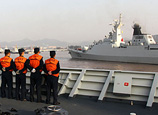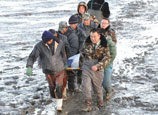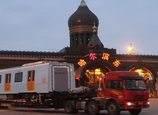
Issues of pure domestic politics can be tackled by the principle of "separation of politics and economics," he said. However, "if the event matters with a country's core interests, it will definitely affect the economic and trade relations," he added.
"In fact, there are not so many problems with the ordinary people," Bark said. "The problems mainly come from the government circle, especially the Japanese politicians. If they have no fundamental changes in their stance, the Northeast Asia's economic cooperation must be affected and impeded."
Mentioning the Trans-Pacific Partnership (TPP), Bark said being different from a South Korea-China-Japan FTA, the TPP is "a little unnatural."
"South Korea, China and Japan are very near to each other in geography. There are great benefits for the nearby countries to form FTA. Whereas, TPP is different," he said.
Among the 11 participating countries of TPP, South Korea has signed FTA with seven and is negotiating with the other four.
"Currently we are still watching by, observing the trend of the development of TPP," Bark said.
Judging from the tendency of regional development, "the Asia-Pacific economic integration is sure to be realized," he said. "From this point of view, TPP is also meaningful. But what I must emphasize is that it is a long process."

















 Memorial service held for China's fighter jet production head
Memorial service held for China's fighter jet production head


![]()
